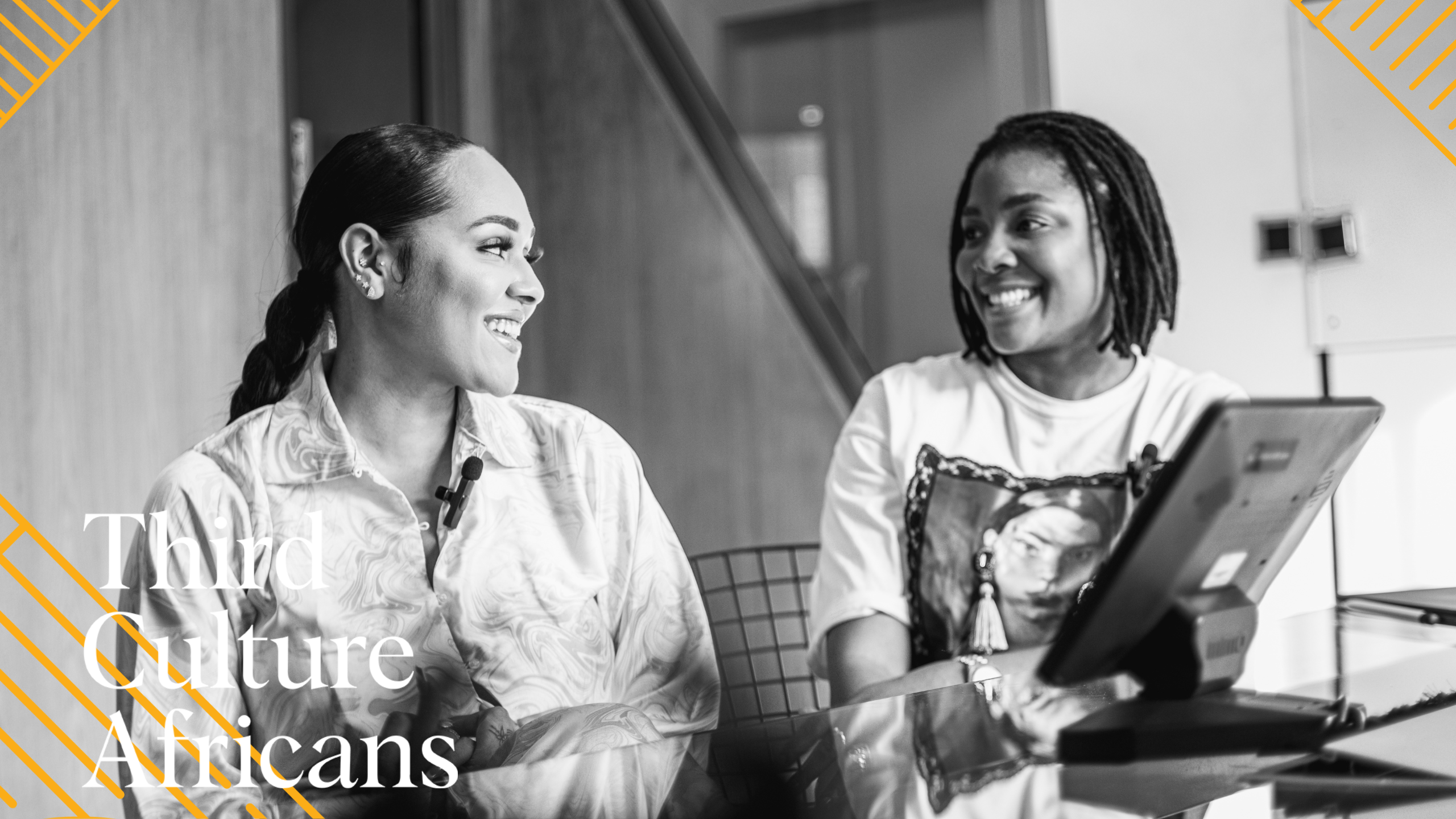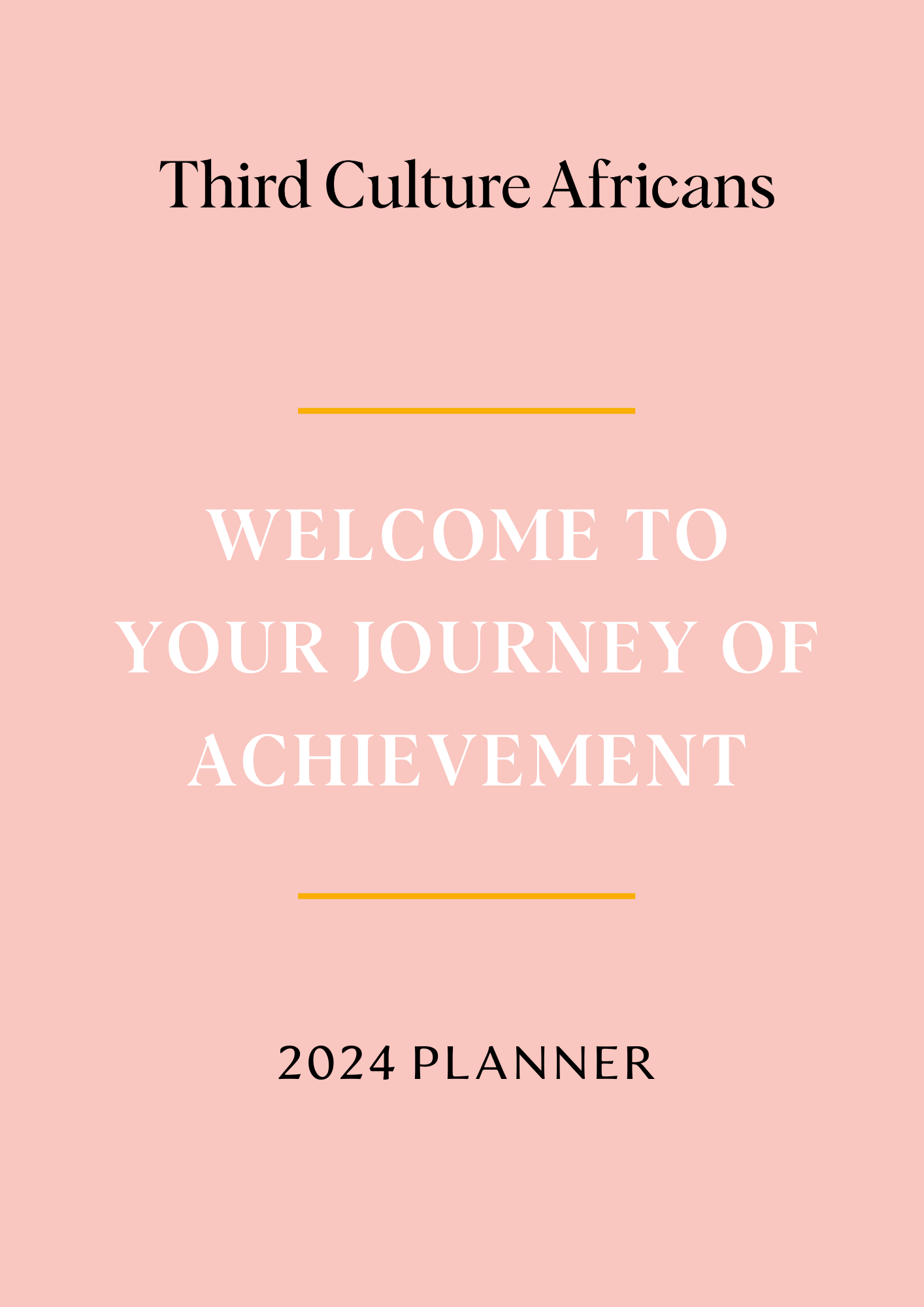If you’ve ever wondered how to use your voice and experiences to create compelling narratives, then Arese Ugwu and Nkiru Balonwu are about to answer that for you. As an accomplished financial educator and a seasoned advocate for African cultural expression, respectively, they each bring a unique perspective on storytelling’s power and potential. Their experiences, from navigating financial literacy to promoting African soft power, offer relatable insights that inspire and empower. They’ll delve into their journeys, sharing practical steps they’ve taken to make their mark in their respective fields.
1. What unique role does storytelling play in shaping the narrative of African women’s success?
Storytelling plays an invaluable role in the narrative of African women’s success, serving as a vehicle to convey their journey in a relatable and inspiring manner. The potency of storytelling lies in its ability to resonate with listeners, empowering them to draw strength and insights from the experiences of others. Moreover, it goes beyond a mere recounting of personal triumphs and trials; it extends to conveying intricate societal issues, such as financial literacy, cultural representation, and collective empowerment. When wielded effectively, it has the potential to not only bring about personal transformation but also foster societal change. The conversation featuring Arese Ugwu and Nkiru Balonwu offered an array of insights into the potential of storytelling – particularly from women’s perspectives. Reflecting on her experiences, Arese stressed the importance of framing global issues like climate change in a way that relates to the African populace, reinventing these narratives through an African lens. Furthermore, her journey as a storyteller was peppered with challenges and triumphs alike, underscoring the role of vulnerability in crafting authentic narratives. Nkiru, meanwhile, highlighted the potential of collective action and the importance of unity among African diaspora. This question of the transformative power of storytelling is crucial for the audience because it underscores the importance of agency. Storytelling serves as a reminder of the power of individual experiences and insights, and their potential to bring about change. More importantly, it highlights the role each person plays in shaping societal narratives, and why each storyteller’s unique perspective is essential to create a more enriched and nuanced dialogue. Interpretations of success and progress vary significantly among individuals, making it all the more crucial to capture a variety of experiences to foster a broader understanding of what success means within the African community. This conversation between Arese and Nkiru serves as a testament to the power of storytelling in shaping perceptions, fostering empathy, and promoting cultural appreciation – each offering valuable lessons for aspiring storytellers and advocates for change.
2. How can storytelling foster a deeper understanding and appreciation of African culture and traditions?
As human beings, we are inherently drawn to stories as mediums of learning, finding comfort, and establishing a sense of community. Storytelling allows us to experience the world through someone else’s eyes, ultimately leading us to develop a keen sensitivity towards their experiences and perspectives. In the context of African culture and traditions, storytelling is not simply a form of entertainment but also a tenacious tool to foster a deeper understanding and appreciation of rich cultural nuances. Its power lies in conveying the diverse tapestry of African experiences, brimming with authentic voices and perspectives. By sharing stories derived from the heart of African communities, we can usher in an era of global awareness, cultural appreciation, and communal solidarity. To highlight this, let’s delve into the wisdom shared by our esteemed guests – Arese Ugwu, and Nkiru Balonwu. Arese Ugwu, known as the ‘Smart Money Woman’, spoke about her unique, yet universally relatable journey in grappling with financial literacy. Her story is not only her own, but a mirror to many African women navigating the path to financial independence. Meanwhile, Nkiru Balonwu brought forth her insights on the potency of African narratives in shaping perceptions. Having experienced the contrast between the idealized representation of American culture and the actual reality, her statements underscore the importance of Africans shaping their narratives organically to counterbalance pre-conceived notions about their culture. By turning the gaze inward and owning the beauty, complexity, and diversity embedded in African cultural wealth, Arese Ugwu, and Nkiru Balonwu present a definitive case for the transformative power of authentic storytelling. Understanding the relevance of storytelling to appreciate African culture and tradition is a central asset for our listeners. It is about embracing diversity, rectifying misconceptions, and celebrating uniqueness rather than sticking to uniform narratives. The act of sharing stories goes beyond the narrators and the listeners; it becomes a guidance tool for the world to learn and relate to the African narratives, fostering empathy, understanding, and eventually love for the culture and traditions. This knowledge offers an all-encompassing view of our shared humanity, reminding us that regardless of where our stories originate, the underlying emotions, desires, and struggles remain profoundly global. Hence, this journey of storytelling is not just important; it is necessary in these times of growing disconnect and depersonalization. Sharing stories, knowingly or unknowingly, helps in bridging gaps and nurturing a world that is truly inclusive and accepting, thus evoking meaningful and influential narratives about Africa and its people.
Are you All Caught Up on Our Latest Episodes?
Listen below to hear helpful insights from our guests!
3. How does financial literacy empower African women and contribute to overall societal growth?
Financial literacy, particularly among women, plays a substantial role in the development of a community and society as a whole. It presents an avenue through which women can attain economic independence, exercising control over their financial circumstances and ultimately contributing to societal growth. The ability to make informed money management decisions is empowering, providing security and enabling individuals to participate effectively in the economy. When women are economically empowered, they are likely to invest in their families and communities, propelling social and economic growth forward. Financial literacy can therefore be seen as a tool for fostering equality, reducing poverty and achieving overall societal growth. Our guest, Arese Ugwu, outlines this perspective through her own experience and work. Known as the Smart Money Woman, Arese has been instrumental in advocating for financial literacy among African millennial women. In her conversation, she emphasizes the disparity between men and women in financial literacy and emphasizes the urgency for women, especially Black and African women, to become financially literate. According to Arese, this not only secures their financial independence but also serves as a means to empower themselves. She sees financial literacy as a stepping stone for women to secure and shape their destiny, reinforcing their direct contribution to societal growth. Her personal journey and dedicated efforts underscore how empowering women financially can lead to significant societal transformations. The relevance of this question to our audience is profound. Financial literacy for women is a crucial lever for social and economic development. It is transformative in its ability to bridge socio-economic gaps, offer security and independence, and contribute to the financial growth of communities and society at large. For aspiring female storytellers, understanding this dynamic provides a powerful narrative tool, enabling them to inspire and guide their audience towards personal and collective growth. When we shed light on the importance of financial literacy and its implications, we effectively empower our audience, imparting a knowledge that can directly improve their lives and contribute to a greater societal change. This understanding becomes a beacon for change, highlighting the vast potential held by African women and the transformative power of financial literacy.
4. What valuable lessons can aspiring African female storytellers learn from the experiences of Arese Ugwu and Nkiru Balonwu?
In the realm of storytelling, aspiring African female storytellers can derive valuable lessons from the experiences of Arese Ugwu and Nkiru Balonwu. A crucial takeaway is the vital role storytelling plays in framing significant issues, like climate change, in ways that resonate with African audiences. Both Arese and Nkiru stress the importance of authenticity and relatability in storytelling which tend to make the narrative more impactful. By incorporating their personal experiences and insights into their works, they uphold the richness and diversity of African narratives. Their stories convey a profound message on the power of believing in oneself, fostering collaboration, and seizing opportunities as they arise. Echoing the sentiment that powerful storytelling can originate from anywhere, they urge budding storytellers to commence their journey, no matter how small. From Arese Ugwu’s perspective, she highlights the transformational impact that storytelling can have on society. Not only does it connect the readers to the gravity of climate change, but it also plays a significant role in advocating for women’s financial literacy and independence. By experimenting with multi-dimensional characters that reflect diverse experiences and backgrounds in her narratives, she rejected the stereotype characters often found in media. Nkiru Balonwu, in contrast, shed light upon important topics like individual social responsibility and the potential power that could be harnessed through unity within the African diaspora. Utilizing the platform of storytelling, both Arese and Nkiru uplift African communities and inspire change through their narratives. The experiences and insights of Arese and Nkiru form a vital resource in understanding why quality storytelling is paramount. Their narratives not only serve an aesthetic purpose but also impact culture and society, fostering unity and empowering individuals. This is particularly important in societies where certain narratives are undermined or misrepresented. By utilizing effective storytelling, overlooked stories can rise to prominence, affecting social change and empowering the community. Through their determination and self-belief, both women have navigated and overcome challenges, reinforcing the notion that every journey, no matter how daunting it may seem at first, begins with a single step. This lesson is crucial for budding storytellers who are taking their first steps in the realm of storytelling and navigating their unique challenges.
5. How can African narratives contribute to bridging the knowledge gaps in the global discourse around Africa’s growth and potential?
While Africa has always held immense potential, past narratives have not always encapsulated the continent’s full breadth of opportunities and growth. African narratives are crucial in bridging this knowledge gap, simply because they offer a unique perspective that non-African narratives cannot replicate. They reflect the pace of the continent’s evolution and its resilience, underlining the untold stories of progress and development. They tell the realities of a nuanced continent defined by diverse cultures, rich history, and the unstoppable drive of its people. It allows for a more informed understanding of the continent’s socio-economic and demographic landscape, thus contributing to global discourse about Africa’s growth and potential. Take the perspective of Arese Ugwu and Nkiru Balonwu, for instance. During their conversation on the Third Culture Africans podcast, they shared stimulating tales from their personal and professional experiences. These anecdotes served as microcosms of Africa’s broader narrative, encapsulating its complexities, its strengths, and its future trajectory. For example, Arese Ugwu, known as the Smart Money Woman, utilizing storytelling as a tool to contextualize financial knowledge specific to African experiences. Meanwhile, Nkiru spoke to the influence of African diaspora and the collective power it can harness for continental development, stressing the importance of unity. This mirrors Africa’s potential – united in diversity and harnessed for growth – a narrative not often considered in global discourse. The significance of African narratives in bridging the knowledge gap cannot be overstated. Their impact isn’t confined to merely changing perceptions, but also includes empowering individuals and communities within and linked to Africa. These narratives subtly lay the blueprint for African’s growth trajectory; they paint pictures of formidable women attaining financial independence, of collective action propelling change, of community collaboration, and of resilient individuals navigating new terrains. They illuminate paths that others can tread, providing both motivation and guidance. Consequently, understanding Africa’s growth and potential becomes more accessible, leaving an indelible impression on listeners, readers, and onlookers – ensuring Africa’s stories are heard, seen, and truly understood.
The exploration of storytelling in African narratives, financial literacy, and the power of individual actions, as shared by Arese Ugwu and Nkiru Balonwu, brings to light the importance of understanding our cultural heritage and using it as a tool for empowerment. The knowledge shared here is fundamental for you, an aspiring African female storyteller, to grasp onto as it allows you to shape powerful narratives that resonate with our communities and beyond. The discussions on financial literacy are particularly critical in helping you secure financial independence and in turn, amplify your stories. Let’s look back on the key questions addressed in this dialogue, as they bring us closer to achieving our goal of impactful storytelling and financial literacy. Let the passion that Arese and Nkiru embody inspire you to take that step towards your storytelling journey.












Muchas gracias. ?Como puedo iniciar sesion?
Your article helped me a lot, is there any more related content? Thanks!
I don’t think the title of your article matches the content lol. Just kidding, mainly because I had some doubts after reading the article.
Thank you for your sharing. I am worried that I lack creative ideas. It is your article that makes me full of hope. Thank you. But, I have a question, can you help me?
Your article helped me a lot, is there any more related content? Thanks!
Thank you for your sharing. I am worried that I lack creative ideas. It is your article that makes me full of hope. Thank you. But, I have a question, can you help me?
Thank you for your sharing. I am worried that I lack creative ideas. It is your article that makes me full of hope. Thank you. But, I have a question, can you help me?
Thanks for sharing. I read many of your blog posts, cool, your blog is very good. https://accounts.binance.info/en-IN/register?ref=UM6SMJM3
Thanks for sharing. I read many of your blog posts, cool, your blog is very good.
Your point of view caught my eye and was very interesting. Thanks. I have a question for you.
**aquasculpt**
aquasculpt is a premium fat-burning supplement meticulously formulated to accelerate your metabolism and increase your energy output.
**backbiome**
backbiome is a naturally crafted, research-backed daily supplement formulated to gently relieve back tension and soothe sciatic discomfort.
**boostaro**
boostaro is a specially crafted dietary supplement for men who want to elevate their overall health and vitality.
**vivalis**
vivalis is a premium natural formula created to help men feel stronger, more energetic, and more confident every day.
**alpha boost**
alpha boost for men, feeling strong, energized, and confident is closely tied to overall quality of life. However, with age, stress, and daily demands
**glpro**
glpro is a natural dietary supplement designed to promote balanced blood sugar levels and curb sugar cravings.
**prodentim**
prodentim is a distinctive oral-care formula that pairs targeted probiotics with plant-based ingredients to encourage strong teeth
**femipro**
femipro is a dietary supplement developed as a natural remedy for women facing bladder control issues and seeking to improve their urinary health.
**glucore**
glucore is a nutritional supplement that is given to patients daily to assist in maintaining healthy blood sugar and metabolic rates.
**vertiaid**
vertiaid is a high-quality, natural formula created to support stable balance, enhance mental sharpness, and alleviate feelings of dizziness
**sleeplean**
is a US-trusted, naturally focused nighttime support formula that helps your body burn fat while you rest.
**provadent**
provadent is a newly launched oral health supplement that has garnered favorable feedback from both consumers and dental professionals.
**oradentum**
oradentum is a comprehensive 21-in-1 oral care formula designed to reinforce enamel, support gum vitality, and neutralize bad breath using a fusion of nature-derived, scientifically validated compounds.
**biodentex**
biodentex is a dentist-endorsed oral wellness blend crafted to help fortify gums, defend enamel, and keep your breath consistently fresh.
中華職棒即時比分台灣球迷的首選資訊平台,結合大數據AI算法提供最即時的中華職棒即時比分新聞、球員數據分析,以及精準的比賽預測。
Alright, so I cruised through Vip666vip777vip888 and the vibe’s kinda…VIP. Feels like a place that takes care of its players. Thinking of signing up, anyone else tried it? Link’s here: vip666vip777vip888
Downloaded the Xoso66appapk! So far so good, seems pretty snappy. Gonna give it a whirl tonight. Def worth a download if you’re into this kinda thing: xoso66appapk
Gave Xsmbxoso666 a peek. Not bad, not bad at all. The site’s easy to navigate. Feeling lucky, might just throw down. Check it out yourself: xsmbxoso666